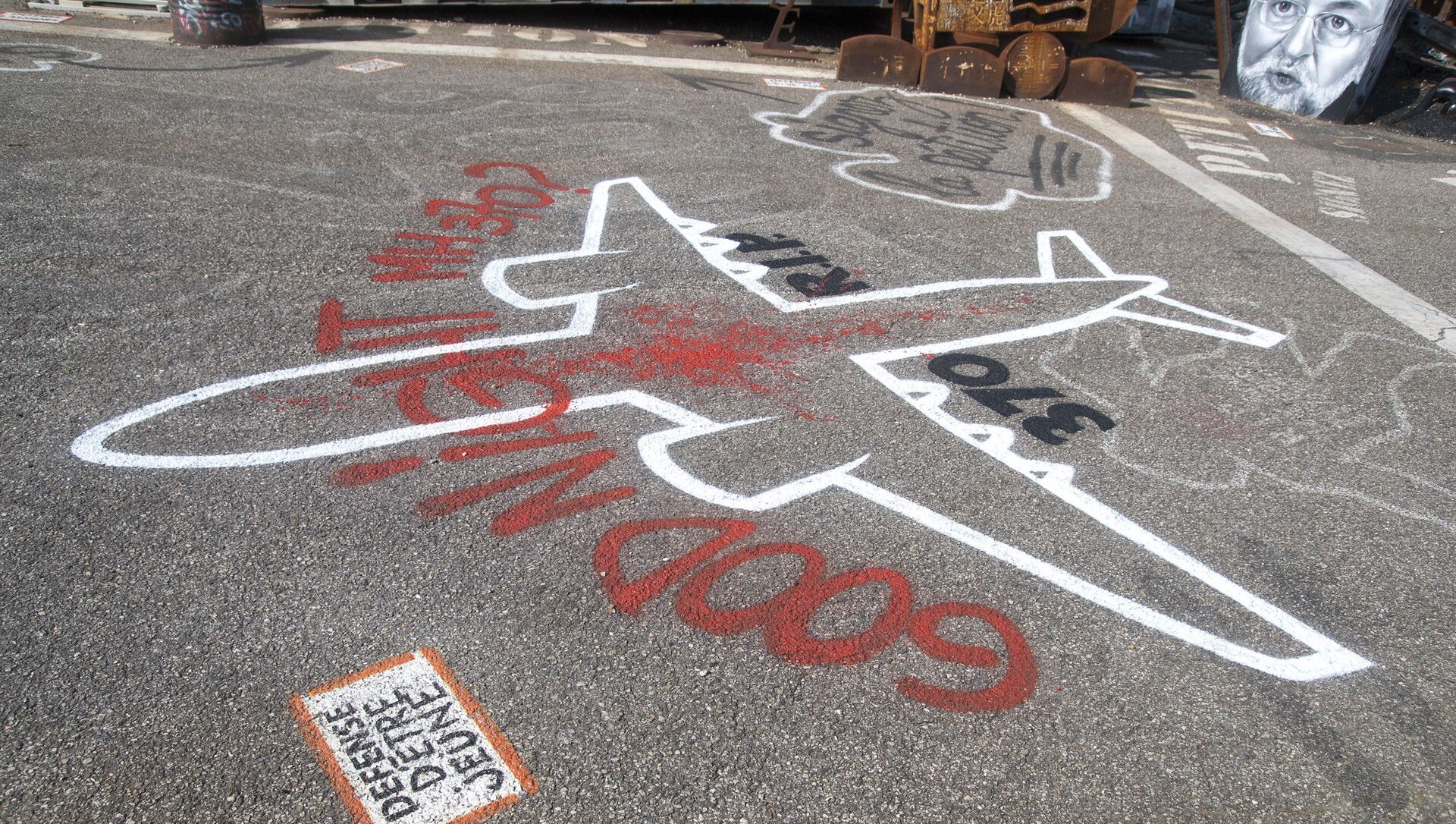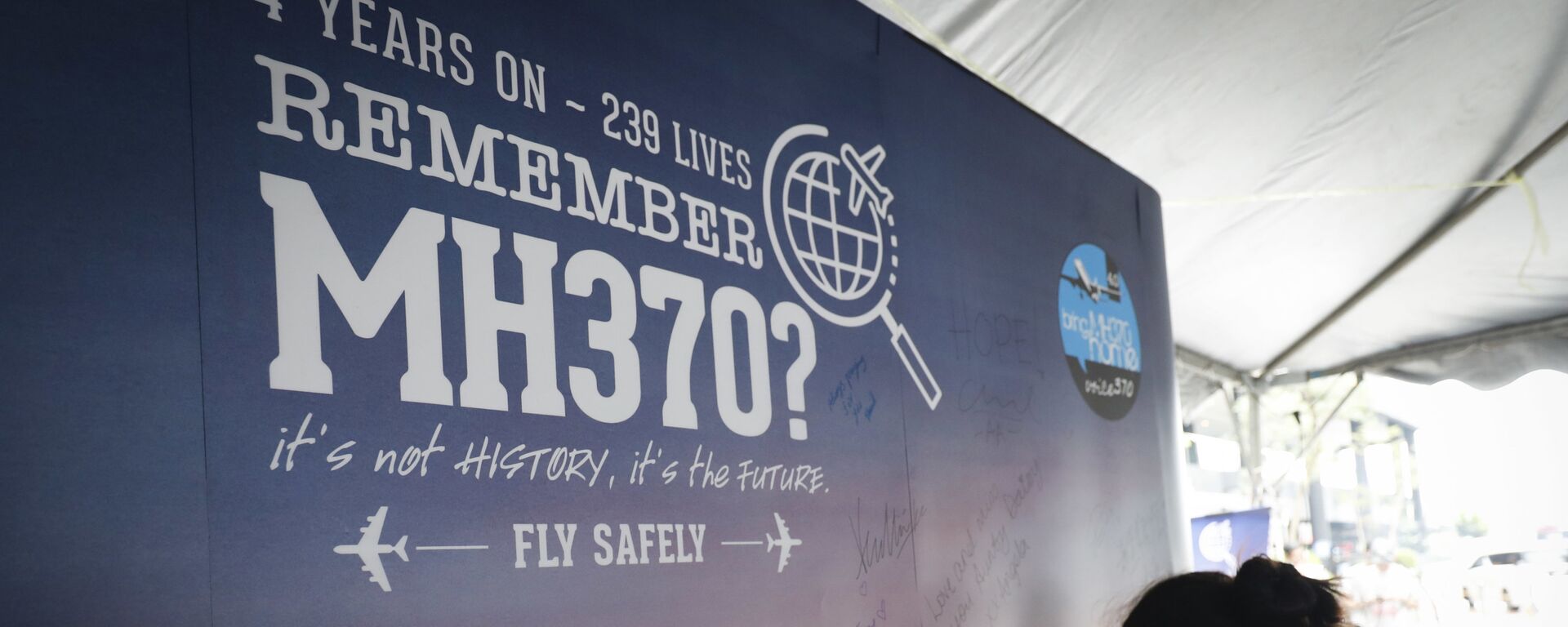Nearly seven years after the disappearance of the Malaysian Airlines passenger jet flying from Kuala Lumpur to Beijing, investigative journalist Florence de Changy has highlighted a number of circumstances which may shed light on the mystery.
Citing de Changy’s new book The Disappearing Act: The Impossible Case of MH370, the Daily Express notes that Matthias Chang, a former advisor to Malaysian Prime Minister Mahathir Mohamad, told the author that two "major military training exercises" were taking place "in the area where MH370 went missing, right about the same time" – Cobra Gold and Cope Tiger. He says the US was taking part in both.
"The Cobra Gold exercise had been organised jointly by Thailand and the US every year since 1982, and involved several thousand American military personnel," de Changy remarks. "These war games included drills on land and at sea, mock beach landings, live-fire exercises, search and rescue missions, and humanitarian aid drills for natural disaster scenarios. Over the past 10 years or so, what began as a Thai–American exercise had widened to include Indonesia, Malaysia, Singapore, South Korea, and Japan."
And while the author questions why these regional partners didn't coordinate to help find the plane, Chang is quoted in the book as saying "ironically, the theme of the 2014 Cope Tiger exercise was search and rescue," the newspaper adds.
According to Sarawak Report, de Changy points at a possible explanation for how the airliner could’ve vanished from radar and stopped emitting signals like it did at the time of its disappearance. She explains that the plane’s signals "faded in stages," which may indicate "interference, most likely by an AWACS plane which can throw a blanket around an aircraft to block out its signals."
"At that point the only entity the pilot would be able to clearly communicate with would be the AWACS command itself," she writes, noting that if a foreign plane was instructing the airliner’s captain to change course or land, the latter might have "considered himself to be under hijack and refused to cooperate." This, she argues, might explain the "Tango" signal – "the code alert that you trigger as a pilot when your plane has been hijacked" – that several planes in the vicinity allegedly received from MH370.
With the airliner approaching Chinese airspace, the situation "would inevitably have escalated," possibly to a point where "shots may have been fired from a number of sources, including defensive fire against unidentified incoming aircraft," de Changy writes.
Being hit by a missile would also explain the "impending disintegration warning that was the last recorded message from MH370 to air traffic controllers in North Vietnam," with the author adding that MH370's captain attempted to "ditch the aircraft in shallow seas near to the Vietnamese coast to try to save his passengers." She says that this would explain "the debris reported on beaches along the North Vietnamese coast over the following couple of days before the search turned south and Vietnam went silent on the story."
Malaysia Airlines Flight MH370 disappeared from radar with 239 passengers and crew on board on March 8, 2014, during a handover from Malaysian to Vietnamese air traffic controllers.
And while there are plenty of theories about what happened to the airliner, its fate remains unknown.



